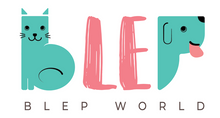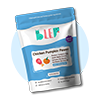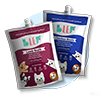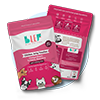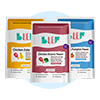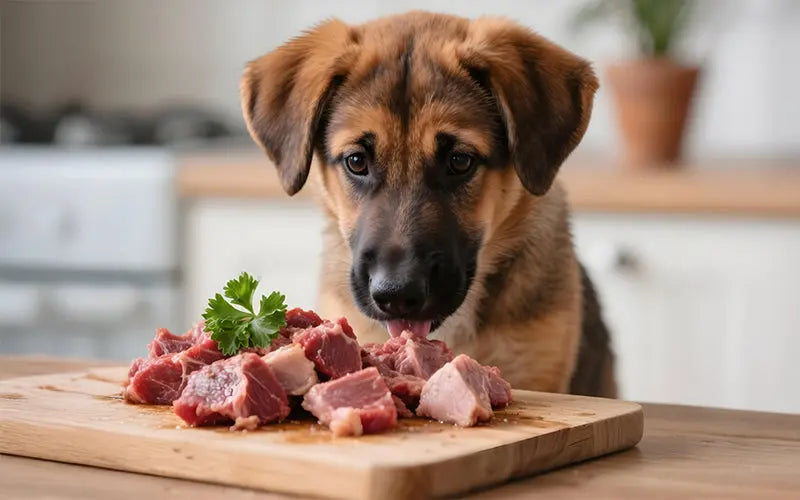How are puppy nutrition needs different from adult dogs?
The major difference between the nutritional needs of adult dogs and the nutritional needs of puppies is in functionality. Adult dogs need to maintain a healthy body — management, protection, and healing. However, puppies need to grow and develop, as well as maintain their bodies. In fact, reports suggest that puppies use almost half of their nutritional energy just to grow! Here’s what puppies need in their diet:
Higher protein content: Protein is the building block of the body. So if you’re wondering how much protein do puppies need in India, the answer is: a lot. Amino acids from protein are required in the development of almost all parts of the body: nails, hair, muscles, skin, organs, bones, nerves, hormones, and others. Therefore, in the growing stage, puppies need a lot of protein in their diet to grow and thrive properly. Around 22%–32% of their diet should be made up of protein.
More fats and calories: Although too many calories, especially from poor sources like starch, fillers, etc., can harm a puppy’s body, they do need more fats and calories in their diet compared to adult dogs. This is because they are in need of a lot of energy, and fats help support brain development. It is recommended that about 8% of their diet should be crude fat.
Proper balance of calcium and phosphorus: A good balance of calcium and phosphorus in a puppy’s diet is crucial for the proper development of teeth and bones. Too much or not enough can cause skeletal abnormalities and other issues in development.
Sufficient DHA: DHA is an omega-3 fatty acid that is essential for brain and vision development. A lack of DHA can cause hindrance in proper cognitive development. In the beginning, puppies get DHA from mother’s milk. In puppy food, a good source of it is fish oil.
Smaller, more frequent meals: Puppies need to eat frequently throughout the day but little amounts of food at a time. For the first 3 months of their life, they can eat a little food every 3-4 hours. Till 6 months, about 3 meals a day is appropriate, and then 2 meals a day thereafter.

What to feed Indian puppies for healthy growth?
All dogs need a diet that is well balanced, high in quality, 100% natural and human grade, with zero preservatives, fillers, or sugar. But puppies need it even more because what they eat today will define their future tomorrow. Their entire body will develop based on what they eat in their initial months. So the best food for Indian puppies should have these qualities:
Well-balanced: Puppies need a holistic, well-balanced diet for their overall growth and development. A puppy’s system is sensitive and in the formative stage, so an excess or lack of protein, carbohydrates, fats, vitamins, minerals or other nutrients can cause obstacles in their development.
High quality: The quality of the food is very important, because merely eating natural food is not enough. The body has to absorb all the nutrients and be able to use them properly for growth. The nutritional value of the food is only adequate when it comes from high-quality ingredients.
100% natural: The word ‘natural’ may be loosely used to mean many things in commercial pet food. However, 100% natural means that there are no ingredients from artificial sources in the food at all. This is an added assurance that no chemicals or additives have been used in the food.
Human grade: Human grade means that the food is safe enough even for human consumption. Many ingredients are used in commercial pet food that are not suitable for human consumption: rotten, rejected, or scraps of meat and veggies. But human-grade puppy food brands in India ensure that the ingredients are good enough for humans to eat, meaning they are not such food byproducts.
Zero preservatives: Preservatives are additives and chemicals that are used to give commercial pet food long shelf lives, even after they’ve been opened and are in contact with outside air. These chemicals can cause gut issues and sensitivities at best and, at worst, have been linked to various diseases like cancer. So zero preservative and zero filler dog food in India is the safest for puppies.
Zero sugar: Sugar can cause havoc in a puppy’s system. The major problem with sugar is that it gets stored in the body and causes various diseases, such as obesity, diabetes, heart diseases, and more. Apart from that, it also affects the teeth, causing them to rot. This is why zero-sugar food is absolutely necessary for puppies.
Zero fillers: Corn, wheat, soy, etc., are common fillers used in pet food to increase palatability and net weight of products. These are of very little nutritional value, are hard to digest, and may cause sensitivities and allergic reactions. Food that doesn’t contain fillers will have more nutritional value and be higher in quality.

How to start feeding natural food to puppies?
Typically, pups would be weaned from mother’s milk or puppy formula between 4 and 10 weeks of age. Natural food is usually semi-solid, with a khichdi-like texture. When this switch from liquid to natural food is happening, puppies need a transition period. The introduction of natural food has to be very gradual so as to not cause any shock to the system:
-
Begin with mixing natural food with water, milk, or formula and putting it on a shallow plate.
-
If they are hesitating, gently bring their head closer to the plate so that they take a couple of licks. Do this 2-3 times a day till they start eating.
-
Once they start eating, over the next 4-6 weeks, reduce the amount of liquid and increase the amount of natural food till they are only eating the food.
-
After that, they should be able to fully adapt to natural food. You can then slowly start introducing more solid food, such as boiled eggs, chicken, veggies, and fruits, gradually like this.
-
In case your pup has any gut issues in this transition period, such as diarrhoea, constipation, vomiting, or indigestion, pause at whatever stage you are for a few days. If they seem otherwise energetic and have an appetite, then restart once their tummy settles. If the issues worsen, then contact your vet.

Looking to explore more tips on how to look after your furry friend? Check out our other guides like Can Dogs Eat Apples?, Can Dogs Eat Blueberries?, Dog Food for Weight Loss, Raw v/s cooked meat for dogs, Home Remedies to cure tick fever, Finding Good Dog Food in India, How many times should I feed my dog?, Things you should do to keep your pet healthy, Types of Dog Food, How Prebiotics and Probiotics can improve your dog's digestion, Essential Tips for a New Dog Parent, What Are Kibbles for Dogs and How Are They Harmful? and others. Each guide is designed to help you make better food and care choices for your dog, to keep them happy, healthy, and thriving.
Resources:
https://lyka.com.au/blog/puppy-vs-adult-food
https://www.purina.com/articles/dog/puppy/feeding/puppy-food-vs-adult-dog-food
https://wagwalking.com/wellness/what-percentage-of-a-dogs-diet-should-be-fat
https://www.purina.com/articles/dog/puppy/feeding/when-to-start-feeding-puppies-wet-food
